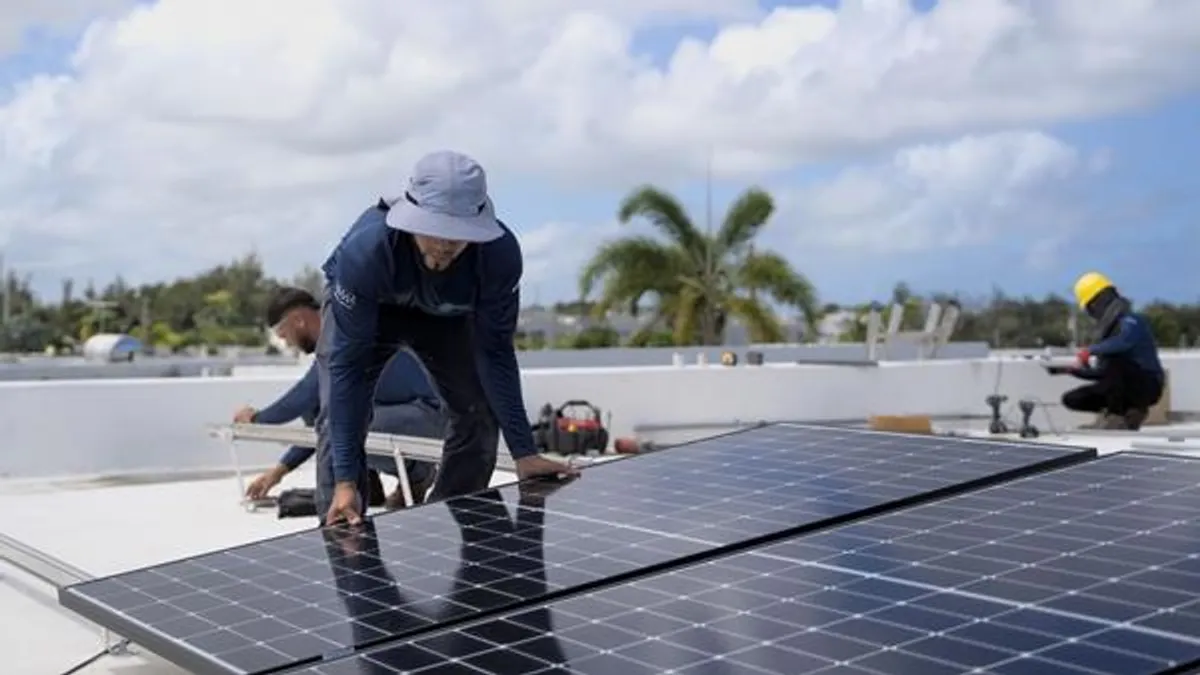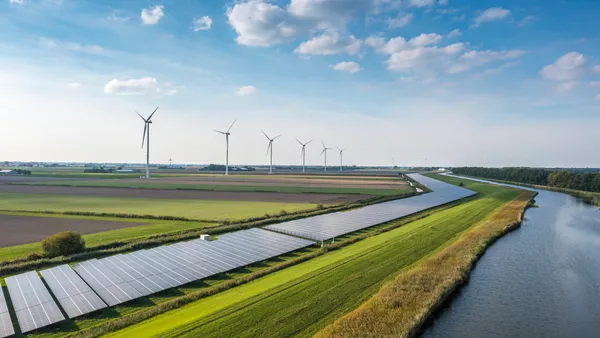The U.S. Department of Energy on Tuesday announced it has finalized an $861.3 million loan guarantee for the development of two solar+battery facilities and two standalone battery facilities in Puerto Rico.
The facilities, collectively referred to as Project Marahu, will add 200 MW of solar generation and up to 285 MW/1,140 MWh of standalone storage to the island’s grid, DOE said. Development is led by Clean Flexible Energy, an indirect subsidiary of AES Corp. and TotalEnergies Holdings USA. A conditional loan guarantee was announced for the project in July.
Puerto Rico is aiming to eliminate coal-fired energy generation by 2028 and develop a 100% renewable energy grid by 2050. The Marahu solar installations are expected to produce approximately 460,000 MWh of energy annually, or enough to power approximately 43,000 homes, according to DOE.
The solar and storage resources DOE is supporting will “improve the grid’s resilience and help reduce energy costs,” Secretary of Energy Jennifer Granholm said in a statement. “Access to reliable energy is a matter of life or death — especially in the face of climate-change fueled natural disasters that are increasing in intensity and frequency.”
Puerto Rico’s electric grid was destroyed by Hurricane Maria in 2017, resulting in a full rebuild and a plan to modernize and decarbonize the island’s energy system.
The Marahu project loan is financed through DOE’s Energy Infrastructure Reinvestment program, created by the Inflation Reduction Act, and follows other support the Biden administration has provided to strengthen Puerto Rico’s electricity system. The President authorized $1 billion for the establishment of the Puerto Rico Energy Resilience Fund in 2022 to drive investments in renewable and resilient energy infrastructure on the island.
A community benefits plan required by DOE “is being finalized and will be released to the public soon,” the agency said. The Marahu project team includes community relations managers from the local area and a group of local community engagement advisors, the agency said.
“AES, through existing facilities operating in Puerto Rico, has forged partnerships with community development non-profits and minority-serving educational institutions,” DOE said. “AES has also worked with a variety of organizations to lead capacity-building and entrepreneurship programs for Guayama and Salinas community members and has formalized programs offering targeted training and career development opportunities for women.”















